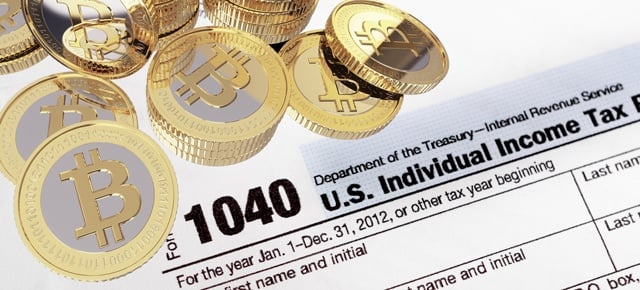“Anonymous” Bitcoin Users’ Details Must be Turned Over to IRS, Federal Court Rules
Posted on: December 1, 2016, 01:10h.
Last updated on: December 1, 2016, 01:14h.
Cryptocurrency Bitcoin’s status as an anonymous, decentralized digital money source was undermined this week, for Americans at least, by a federal court ruling that grants the Internal Revenue Service (IRS) powers to seek information on its users.

On Wednesday, Judge Jacqueline Scott Corley of the California Northern District Court ruled that America’s largest Bitcoin service, Coinbase, must provide the IRS with records of every customer who traded the digital currency on the site between 2014 and 2015.
The so-called “John Doe” summons will lift the veil of anonymity on five million Coinbase users and reveal details of multiple-millions of transactions, as part of an effort to identify tax evaders. Despite the ruling, the value of Bitcoin has remained stable, so far, at least.
San Francisco-based Coinbase is a Bitcoin wallet, essentially a service providing online accounts for holding and trading the digital currency. In general, Bitcoin transactions are visible on a public ledger, but the identity of the participants is encrypted. However, Coinbase has records of its own private customers, of course.
Is Bitcoin Losing its “Anti-Establishment” Credentials?
The ruling could well prove to be a blow to Bitcoin’s reputation as an instrument of liberation from government law and world banking, however. The currency, and those like it, was created as an essentially subversive alternative to the world’s centralized banking systems, but more recently it has, to an extent, been integrated into the financial and legal system.
In 2014, the IRS announced that Bitcoin would be treated as property for tax purposes, meaning that people who sold digital currencies at a profit would be liable for capital gains taxes. But first, the IRS has to find them.
In September of this year, a federal judge went one step further in declaring that Bitcoin was actual “money,” in the eyes of the law. For gaming operators, Bitcoin was initially seen as a means of circumventing prohibitions in jurisdictions where online gambling was illegal, precisely because it had no legal classification. This is no longer the case.
Coinbase Is Ready for Battle
Coinbase said today it intended to challenge the ruling, which it described as a “sweeping fishing expedition” on behalf of the IRS.
“We are aware of, and expected, the Court’s ex parte order today,” Coinbase said in a statement. “We look forward to opposing the DOJ’s request in court after Coinbase is served with a subpoena. As we previously stated, we remain concerned with our US customers’ legitimate privacy rights in the face of the government’s sweeping request.”
The Justice Department wasted no time in responding, and letting users know they are on the radar.
“There is no allegation in this suit that Coinbase has engaged in any wrongdoing in connection with its virtual currency exchange business,” the DOJ said on Wednesday in a statement. “Rather, the IRS uses John Doe summonses to obtain information about possible violations of internal revenue laws by individuals whose identities are unknown.”
Related News Articles
DOJ to Release $33.5 Million in AP/UB Online Poker Player Paybacks
Most Popular
FTC: Casino Resort Fees Must Be Included in Upfront Hotel Rates
Genovese Capo Sentenced for Illegal Gambling on Long Island
NBA Referees Expose Sports Betting Abuse Following Steve Kerr Meltdown
UPDATE: Former Resorts World & MGM Grand Prez Loses Gaming License
Most Commented
-
UPDATE: Whiskey Pete’s Casino Near Las Vegas Closes
— December 20, 2024 — 32 Comments -
Caesars Virginia in Danville Now Accepting Hotel Room Reservations
— November 27, 2024 — 9 Comments -
UPDATE: Former Resorts World & MGM Grand Prez Loses Gaming License
— December 19, 2024 — 8 Comments -
NBA Referees Expose Sports Betting Abuse Following Steve Kerr Meltdown
— December 13, 2024 — 7 Comments
















No comments yet